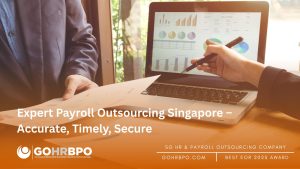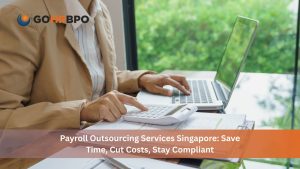In Singapore, a thriving business hub, minimizing your tax liability is crucial for long -term success. The good news is, The Inland Revenue Authority of Singapore (IRAS) allows businesses to claim deductions on a wide range of qualifying expenses. By effectively claiming these deductions you can significantly reduce taxable income and optimize your Singapore Tax Bill. In this blog, we will dive deep into the world of business expense deductions and encounter these following questions:
- What qualifies as a deductible business expense
- Different types of business and common deductible business expenses
- Key principles for claiming deductions effectively
- Strategies for maximizing deductions and minimizing tax liability
Singapore Tax: Key Pointers to Consider
1. What qualifies as a deductible business expense?
The golden rule for claiming tax deductions in Singapore is that these expenses must be the following:
- The expenses must directly be related to your business operations and generate income.
- The expenses incurred to set your business up does not count. However, ongoing operational costs usually do qualify.
- The expenses should be in line with the market rates for the similar services incurred.
- The expenses should be properly documented, meaning, one should keep a track of receipts, invoices and other supporting documents.
2. Common deductible expenses for Singapore business
Here’s a breakdown of some deductible business expenses:
- General expenses: These include rent, utilities, office supplies, repairs and maintenance, accounting and legal fees, business related travel expenses, etc.
- Employee expenses: These include wages, employee benefits such as (CPF contributions, medical insurance), training and development costs etc.
- Inventory and Cost of Goods Sold (COGS): These include expenses related to purchasing of raw materials and other manufacturing items related to the inventory.
- Research and Development (R&D) related expenses: Salaries for the R&D personnel, laboratory equipment and materials related to R&D.
3. Key principles for claiming tax deduction effectively
Here are some key principles that you need to be vary of before claiming tax deductions:
- Maintaining Records: Keep all the receipts, invoices and bank statements for a minimum of five years. In case of electronic records, they are acceptable unless they can be readily retrieved.
- Categorize expenses accurately: Organize expenses category wise for easier filing and retrieval.
- Difference between capital and revenue expenses: Capital expenses (e.g., purchasing equipment) are depreciated over their useful life while revenue expenses (e.g., office supplies) are fully deductible in the year they are incurred.
- Review IRAS guidelines carefully: The website of IRAS provides comprehensive information on deductible expenses. Make sure to stay updated on its guidelines.
4. Strategies for maximizing deductions and minimizing tax burdens
Things to consider:
- Review your business expenses carefully: Identify areas where you might be incurring unnecessary expenses or failing to claim deductions that you are entitled to.
- Utilize government tax incentives: Singapore offers various tax incentives for businesses, such as Productivity and Innovation Credit (PIC) scheme for qualifying expenses that add up to expenses related to innovation and productivity improvements.
- Seek professional advice: If you have complex business operations or you are unsure about specific deductions, consider consulting a qualified advisor who can guide you through the process and ensure compliance with the IRAS regulations.
Singapore Tax: Additional Considerations
- Partial Tax Exemption (PTE): This offers partial tax exemption on the first $SGD 78,000 of chargeable income. However, this benefit applies unless your company claims the start-up tax exemption.
- Start-up Tax Exemption Scheme: Qualifying new companies can enjoy a three-year exemption on their taxable income. This can be particularly beneficial for getting your business off the ground. There are eligibility requirements.
- Withholding Tax (WHT): If your business makes certain payments to non-residents (e.g., interest, royalties, rent), you may need to withhold tax at the source. The specific rate depends on the type of payment and whether there’s a tax treaty between Singapore and the recipient’s country.
- Goods and Services Tax (GST): Singapore has a broad-based GST of 7%. Most businesses must register for GST if their annual turnover exceeds SGD$1 million.
Conclusion
By familiarizing yourself with the rules for claiming business expense deductions in Singapore, you can significantly reduce your taxable income and maximize your profits. Carefully track your expenses, understand the documentation requirements, and don’t hesitate to consult a tax professional for complex situations. Taking advantage of these deductions can give your Singapore business a valuable financial edge.
Suggested Read: Payroll Taxes For Small Businesses in Singapore






